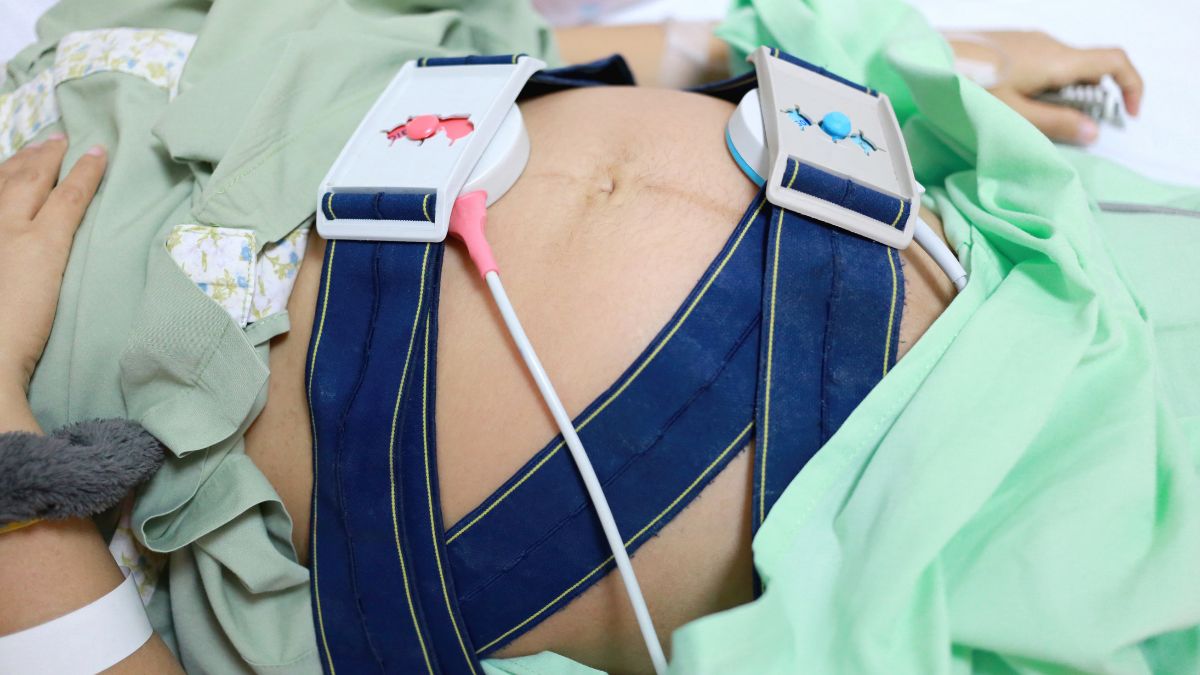In the journey of pregnancy, there are moments of joy and anticipation, but there can also be times of heartache and sorrow.
Miscarriage, an experience shared by countless parents-to-be, is an emotionally complex and deeply personal event that leaves a lasting impact.
As we delve into this sensitive topic, we aim to uncover the reasons behind the profound emotional pain that often accompanies a miscarriage.
Join us as we delve into the depths of this often-misunderstood subject, seeking understanding, compassion, and healing for those who have encountered this heartbreaking aspect of the journey to parenthood.
Miscarriage Overview
According to the American College of Obstetricians and Gynecologists (ACOG), a miscarriage occurs in at least 10 percent of clinically identified pregnancies, meaning those where the woman knew she was pregnant.
Most of these miscarriages happen in the first trimester, up to 80% occurring within the first 12 weeks.
When a miscarriage occurs, it can often be a physically and emotionally painful process, marked by symptoms such as abdominal pain, cramping, and bleeding.
The emotional pain can be as intense, if not more, featuring feelings of grief, loss, and anxiety.
The Physical Pain of Miscarriage
Abdominal Cramping
One of the most common physical symptoms of a miscarriage is abdominal cramping, similar to the discomfort experienced during a menstrual period.
The uterus contracting usually causes this pain to expel its contents.
The cramps can be felt on both sides of the lower abdomen or pelvic region and may come and go in waves, or the pain might feel more constant.
Vaginal Discomfort and Heavy Bleeding
Another physical symptom is vaginal discomfort caused by shedding the uterine lining prepared for pregnancy.
This can result in heavier-than-usual bleeding, which can lead to significant pain.
Losing a substantial amount of blood during a miscarriage can cause symptoms like dizziness and may necessitate medical attention.
Other Physical Symptoms
In addition to abdominal cramping and vaginal discomfort, other physical symptoms may include nausea, diarrhea, vomiting, back pain, and fatigue.
In rare cases, shoulder pain may indicate an ectopic pregnancy or a severe medical emergency.
Emotional Impact of Miscarriage
Grief and Sadness
The emotional impact of a miscarriage can be as intense, if not more so, than physical pain.
Grief is common after a miscarriage, as losing a pregnancy can be akin to losing a loved one.
It’s essential to understand that these emotions are normal and that it’s okay to grieve.
Anxiety and Fear
Alongside grief, miscarriage can also trigger feelings of anxiety and fear.
These can range from nervousness about future pregnancies to worries about health or fertility.
Communicating these feelings with your healthcare provider, who can provide reassurance and guidance, is essential.
Guilt and Self-Blame
Guilt and self-blame are also common emotions after a miscarriage.
Despite most miscarriages being caused by genetic abnormalities beyond anyone’s control, it’s not unusual for women to wonder if they did something to cause the loss.
It’s crucial to remember that miscarriages are rarely, if ever, the mother’s fault.
Coping with Miscarriage
Acknowledge Your Feelings
It’s essential to give yourself permission to grieve after a miscarriage and acknowledge the emotional pain you’re experiencing.
Remember that it’s okay to feel sadness, anger, guilt, or any other emotion that comes up.
Seek Support
Contact trusted friends, family members, or mental health professionals for support.
Joining a support group or connecting with others who have experienced a miscarriage can also be beneficial.
Take Care of Your Physical Health
Ensure that you take care of your physical health during this difficult time. This can include:
- Getting plenty of rest
- Staying hydrated
- Eating nutrient-dense foods
- Seeking medical care if needed
Consult a Healthcare Provider
If you suspect a miscarriage or have confirmed one, staying in touch with your healthcare provider is essential.
They can guide you through the physical recovery process, provide emotional support, and help you navigate any medical decisions that may need to be made.
The Hormonal Impact of Miscarriage
Following a miscarriage, your body undergoes hormonal shifts as it readjusts to no longer being pregnant.
These hormonal changes can intensify the emotional pain of a miscarriage, triggering feelings of sadness, anxiety, and irritability.
Impact of Miscarriage on Identity
For many women, learning they are pregnant can instigate a significant shift in identity from woman to mother.
A miscarriage can disrupt this transformation, leading to feelings of loss and grief for the pregnancy and the maternal identity that was beginning to form.
Impact on Relationships
A miscarriage can also strain relationships, especially between partners.
Men and women often respond differently to a miscarriage, leading to misunderstandings and miscommunications.
Partners must communicate openly about their feelings and support each other during this challenging time.
Considering Future Pregnancies
The decision to try for another pregnancy after a miscarriage can be fraught with anxiety and fear.
It’s usually safe to conceive after one normal menstrual cycle, but it’s best to wait until you’re emotionally ready.
Most women who miscarry go on to have a successful subsequent pregnancy.
The Role of Therapy in Healing
Therapy can be crucial to healing after a miscarriage, providing a safe space to explore feelings of grief, guilt, anxiety, and fear.
A mental health professional can help guide you through the grieving process and provide strategies for managing emotional pain.
Final Thoughts
Experiencing a miscarriage can be a traumatic and painful event, both physically and emotionally.
However, understanding why miscarriages hurt so much can provide some solace and offer a path toward healing.
It’s important to remember that it’s okay to grieve, seek support, and care for yourself during this challenging time.
The information provided in this article is for informational purposes only and is not intended to be a substitute for professional medical advice, diagnosis, or treatment. Always seek the advice of your physician or other qualified healthcare provider with any questions you may have regarding a medical condition. Do not disregard or delay seeking professional medical advice because of something you read in this article.
Sources
- American Psychological Association (2012, June 12). Miscarriage and loss. Retrieved July 23, 2023, from https://www.apa.org/monitor/2012/06/miscarriage
- American College of Obstetricians and Gynecologists (2018, November 1). Early Pregnancy Loss. Retrieved July 23, 2023, from https://www.acog.org/clinical/clinical-guidance/practice-bulletin/articles/2018/11/early-pregnancy-loss







